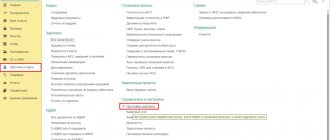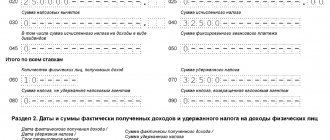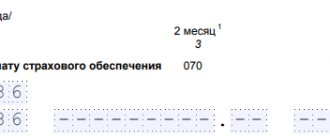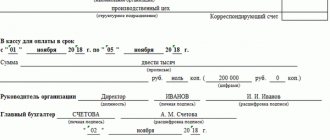The award is mentioned in Article 129 of the Labor Code of the Russian Federation. The law establishes it as a payment of an incentive nature. It can be part of the salary of the staff of the enterprise (organization). The law imposes on the employer the obligation to develop a remuneration system at the enterprise, as well as the rules for its application, in agreement with this process with representatives of the workforce. As for enterprises of state or municipal ownership, the employer is guided by recommendations that are developed by a special commission every year in accordance with 161-FZ of 2002. Based on the results of developing recommendations, a protocol is drawn up.
The procedure for calculating and paying bonuses
Each employer must have an internal document that contains a description of the applicable remuneration. The document may contain rules for calculating the components of wages for employees of the enterprise. The development, drafting, and implementation of an internal document into the work of an enterprise can significantly simplify the text of an employment contract. The employment contract may not list the algorithm for calculating wages to employees: the document may contain a link to the internal act of the enterprise. Bonuses at an enterprise can be annual, quarterly or one-time. The first two types of bonuses are regular.
Procedure for paying a one-time bonus
A one-time bonus is a monetary remuneration given to an employee in order to stimulate further work. This action of the employer remains outside the scope of remuneration, which is of a regular nature. A one-time bonus cannot be considered standard remuneration. Its difference from other types of bonuses, for example quarterly remuneration, is that the one-time payment does not have a regular basis. The reason for receiving it can be any event in the company, or the achievement of high results in work by a specific employee.
A one-time bonus can be included by the employer in the system for calculating a person’s wages, as well as vacation pay. One-time remuneration is regulated by internal regulations adopted by the enterprise, a collective agreement and is calculated in the employee’s salary structure. But it does not apply to mandatory payments, since it is established for a specific person or group of people who have achieved high results in their work.
The one-time bonus is based on documents that regulate labor relations in a particular company. Such documents include:
- collective agreement;
- contract of employment;
- regulations governing wages in the company;
- other internal acts.
The company can independently develop a document that contains the rules for awarding bonuses to employees. The main condition is that the internal act does not contradict the collective agreement or the laws of the Russian Federation. Thus, the following issues are addressed in the company’s internal document or existing bonus regulations:
- conditions for issuing the award;
- bonus amount;
- calculation procedure;
- issuance procedure;
- circle of persons subject to bonuses;
- sources of bonuses.
The one-time bonus must be clearly calculated. It is the employee's income and therefore subject to tax. The issuance of monetary remuneration is reflected in the accounting documentation. The employer can assign a one-time incentive in the form of a fixed amount or an amount calculated as a percentage of the salary received by an individual employee. The fixed amount of a one-time bonus can be determined on the basis of one of the internal acts adopted by the enterprise (organization).
To calculate the one-time bonus, simple rules are applied. If the bonus is fixed, then the employee’s monthly salary is added to it. For example, bonus 5000, salary 15000. The total is 20000. We multiply this amount by the bonus factor. It is different, it all depends on the specific region where the recipient lives.
If the bonus is set as a percentage of the employee’s salary, then it is necessary to understand how much the percentage of the salary assigned by order of the employer will be. The percentage is added to the employee's salary paid to him for the month.
The decision on a one-time payment is made by the employer. But the amount and the algorithm for issuing it are regulated by law. In particular, Art. 144 Labor Code of the Russian Federation.
Thus, the head of the department where the recipient works determines the criteria by which the payment process takes place. For example, the head of a department can write a memo justifying the need for payments, or create another document equivalent under the law. The amount of the bonus issued is agreed upon with the head of the financial department. Data for the purpose of making a final decision is transferred to the highest official of the enterprise. He must sign a document, which is then transferred to the organization’s accounting department, where the reward is issued.
An order to issue a bonus on a one-time basis cannot be drawn up arbitrarily. It must be in the form T-11 or T-11a. The form was developed by Goskomstat in 2004. The award order must reflect the following points:
- first and last name of the employee;
- employee personnel number;
- employee's position;
- name of the department where he works;
- incentive amount;
- type of award;
- bonus amount.
When and how can an employee be deprived of a bonus?
Let's move on to the question of in what cases employees may be deprived of bonuses. In this case, the term “deprivation of a bonus” will mean both a simple failure by the employer to award bonuses, and an intentional deduction of bonuses, that is, deprivation of a bonus.
Let's start with the first option - simply not accruing bonuses. In what cases does the employer have the right to do this? The answer to this question depends on the type of award. If we are talking about a bonus that is part of the salary, then such an incentive payment cannot be accrued only if the employee has violated the conditions necessary to receive it. For example, did not fulfill the sales plan. If the employee complies with the conditions specified in the local act for receiving an incentive payment, then the employer does not have the right to refuse to award a bonus. Thus, a situation is possible when some employees (those who fulfilled the sales plan) are accrued a bonus, but others (those who did not fulfill the sales plan) are not accrued.
Please note that this approach to the issue of non-awarding bonuses does not deprive the employer of the right not to apply incentive payments to errant employees. But in order to exercise this right (for example, not to award bonuses to those who violate labor discipline), it is necessary to specify in the local act the appropriate criteria for awarding bonuses. For example, in order to have a basis not to award a current bonus to employees who are late for work, it is necessary to stipulate in a local act, as one of the conditions for paying a bonus, the absence of facts of lateness to the workplace. If this is not provided for, then non-awarding a bonus to an employee who complies with all other bonus conditions can be regarded as non-payment of wages with all the ensuing consequences (penalties under Article 236 of the Labor Code of the Russian Federation and a fine under Part 6 of Article 5.27 of the Code of Administrative Offenses of the Russian Federation).
The situation is different with bonuses and incentives. On the one hand, the payment of such bonuses is the right, not the obligation of the employer. Therefore, no additional grounds are required for not charging a one-time bonus. But on the other hand, such a decision (not to charge a bonus) should not be discriminatory. That is, the employer cannot simply, at its own discretion, pay such a bonus to one employee and not pay it to another (see the ruling of the RF Armed Forces dated November 27, 2017 No. 69-KG17-22). In other words, the employer has the right, without giving reasons, not to transfer bonuses and incentives to all employees at once. But if some type of incentive, provided for, for example, by the Regulations on Bonuses, is awarded to one employee, then other employees who comply with the terms of the bonus should receive the corresponding incentive. Let's explain with an example. The local act of the organization provides for the payment of a quarterly bonus for sales managers. To accrue it, you must fulfill conditions A, B and C. The bonus is accrued based on the decision of the head of the company. If such a decision exists, then the bonus should be paid to all sales managers who fulfill these three conditions. If the manager did not decide on a bonus, then none of the sales managers can receive the specified bonus, regardless of whether he fulfilled conditions A, B and C or not.
There is no need to issue a separate order not to accrue a bonus (either a bonus that forms part of the salary or an incentive bonus). We also note that in the order for awarding a bonus to one employee there is no need to indicate that other employees are deprived of a bonus due to the commission of some misconduct (lateness, untimely delivery of work, mistakes, etc.). Such orders can be qualified as documents establishing punishment for workers that is not provided for by the norms of the Labor Code of the Russian Federation. And this is fraught not only with additional accrual of bonuses with interest (Article 236 of the Labor Code of the Russian Federation), but also with the imposition of a fine for the employer under Article 5.27 of the Code of Administrative Offenses of the Russian Federation, as well as the accrual of compensation for moral damage caused to the employee.
Compose HR documents using ready-made templates for free
Deadlines for payment of annual bonus
A year-end bonus can be paid on the basis of an employment contract, a collective agreement, or an internal document, for example, a regulation on remuneration. Payments are made by order of the head of the organization. The order has the form T-11 and T-11a.
The terms for payment of the annual bonus are determined by law, in particular, in Article 136 of the Labor Code of the Russian Federation. The annual bonus must be paid to the company's staff (designated employees) within 15 days from the date of its accrual. During these 15 days, employers can set any date for issuing the bonus. For example, these could be days:
- the last working (calendar) day of the outgoing year simultaneously with the payment of wages;
- the day after the founder of the organization accepted internal reporting;
- day after submission of annual reports.
If the employer violates the terms of payment of the annual bonus, penalties are imposed on him.
Types of awards
Managers of organizations use various allowances, additional payments and bonuses for employees (Article 135 of the Labor Code of the Russian Federation) when paying for labor. Bonuses are accrued to certain categories of employees both one-time and on a regular basis. Terms, amounts, conditions for accrual and other provisions are approved at the discretion of management in the local regulations of the enterprise. These include:
- collective agreement;
- individual employment contract;
- additional agreements;
- wage regulations;
- bonus regulations, etc.
All documents of the organization must take into account the norms of labor legislation and legal acts in force on the territory of the Russian Federation. There are three main types of bonus payments:
- One-time. The remuneration is issued on a specific case to individual employees or the entire workforce, and the bonus is paid during the interpayment period without taking into account the time and amount of other salary accruals. To do this, the manager issues an order for the organization.
- Periodic. Paid monthly and quarterly. They are divided into production and non-production. The first ones are directly related to the performance of job duties and the achievement of certain results. The latter do not relate to the employee’s production activities, for example, quarterly non-production payments to parents with many children or those with adopted children, etc.
- Annual - when they pay a New Year's bonus or the so-called thirteenth salary. It is usually equal to monthly earnings. Issued before the New Year holidays once a year based on the capabilities of the enterprise and is not mandatory by law. Its main goals are remuneration for qualitative and quantitative performance indicators of individual employees or the entire workforce and increasing the financial attractiveness of the employer for hired specialists. The management of the enterprise has the right to determine how the bonus is paid at the end of the year, in what amount, establish special requirements for employees to receive it, provide provisions for payment in the labor and collective agreement and take it into account when calculating the tax base, average earnings, vacation pay, and compensation. Or refuse to assign New Year's bonuses.
Terms of payment of monthly premiums
Monthly bonuses, based on the meaning, are paid based on the results of the month worked by the employee. The employer analyzes the labor productivity of the departments, then makes a decision on whether to provide bonuses to its employees. Payment of such bonuses is made no later than the 15th day of the month following the worked month. The scheme is not simple for employers with a large staff of employees, that is, managers of large enterprises. It is difficult to determine the performance of each of the departments operating in a large enterprise in 15 days. Therefore, there is often a delay in premiums of 1-2 months. But this no longer complies with the law; the employer bears administrative liability for violations.
Employers sometimes do not have time to analyze the work results of their employees. Consequently, the accrual and payment of bonuses are delayed. Often, because of this, employers resort to schemes for transferring bonuses to other periods, which should be reflected in local regulations. Such actions of the employer will not be legal, since the Labor Inspectorates are not loyal to this process if they discover such a scheme. In addition, these schemes are an additional burden on accounting.








